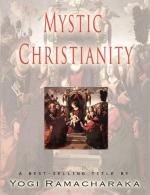But, not so with the people who flocked to the ranks of Christianity toward the close of the first century—coming from pagan people, and bringing with them their pagan legends and doctrines. These people believed that the Body was the Real Man, and consequently attached the greatest importance to it. These people were almost materialists as the result of their pagan views of life. They began to exert an influence on the small body of original Christians, and soon the original teachings were smothered by the weight of the pagan doctrines. For instance, they failed to grasp the beautiful ideas of Immortality held by the original Christians, which held that the soul survived the death and disintegration of the body. They could not grasp this transcendental truth—they did not know what was meant by the term “the soul,” and so they substituted their pagan doctrine of the resurrection of the physical body. They believed that at some future time there would come a great Day, in which the Dead would arise from their graves, and become again alive. The crudeness of this idea, when compared to the beautiful doctrine of the Immortality of the Soul of the original Christians, and by the advanced Christians to-day, is quite painful. And yet these pagan converts actually smothered out the true teachings by their crude doctrine of resurrection of the body.
These people could not understand how a man could live without his physical body, and to them future life meant a resurrection of their dead bodies which would again become alive. To them the dead bodies would remain dead, until the Great Day, when they would be made alive again. There is no teaching among these people regarding the soul which passes out of the body and lives again on higher planes. No, nothing of this kind was known to these people—they were incapable of such high ideas and ideals—they were materialists and were wedded to their beloved animal bodies, and believed that their dead bodies would in some miraculous way be made alive again at some time in the future, when they would again live on earth.
In view of modern knowledge regarding the nature of matter, and the fact that what is one person’s body to-day, may be a part of another’s to-morrow—that matter is constantly being converted and reconverted—that the universal material is used to form bodies of animals, plants, men, or else dwell in chemical gases, or combinations in inorganic things—in view of these accepted truths the “resurrection of the body” seems a pitiful invention of the minds of a primitive and ignorant people, and not a high spiritual teaching. In fact, there may be many of you who would doubt that the Christians of that day so taught, were it not for the undisputed historical records, and the remnant of the doctrine itself embalmed in the “Apostle’s Creed,” in the passage "I believe in the resurrection of the body” which is read in the Churches daily, but which doctrine is scarcely ever taught in these days, and is believed in by but few Christians—in fact, is ignored or even denied by the majority.




